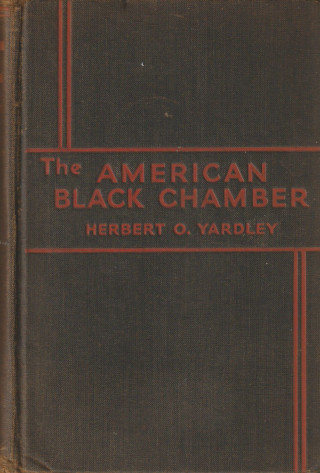The Black Chamber officially shut down on October 31, 1929. Yardley and his staff received three months of severance pay, and their files and records were transferred to the new Signal Intelligence Service, the Army’s predecessor to the NSA, which was now openly funded by the American government.
Yardley’s dismissal coincided with the start of the greatest economic depression America had ever seen. The onetime head of the most covert American agency now found himself unemployed, without an official civil service record or retirement benefits. “Never a saver,” wrote biographer David Kahn in The Reader of Gentlemen’s Mail: Herbert O. Yardley and the Birth of American Code-Breaking, “he had few or no resources to fall back on.”
In need of a way to support his wife and son, Yardley, in an act of desperation in June 1930, “sold the Japanese Embassy in Washington the information that the U.S. had broken the Japanese codes and read their messages for a considerable number of years, together with his methods of solution,” according to a now-declassified memorandum prepared for the deputy director of central intelligence in 1967. In exchange for $7,000 (around $130,000 today), the cryptologist assured his newest customers that he would not make the information public or available to others. Then he moved his family back to his home state of Indiana and began working on a tell-all book.
Yardley “sold his soul for his book,” Kahn wrote. “He exaggerated his successes in his official reports and in his book, though he was honest in minor personal matters. Yet … he told stories well. People liked him.”
The publication of The American Black Chamber on June 1, 1931, as well as three preceding articles in the Saturday Evening Post, embarrassed the Japanese. Their nation now appeared vulnerable and gullible in the eyes of the world—and they’d been cheated out of $7,000. Worst of all, admitting to paying the bribe would only exacerbate the ridicule. It wasn’t until the 1960s that the NSA discovered evidence of the transaction. Meanwhile, the book became a national best seller in Japan. The Japanese government promptly purchased more than 100 copies of Yardley’s book, sending it to embassies and legations to encourage them to strengthen their codes.
The U.S. government was just as blindsided. J. Edgar Hoover, director of the FBI, had suspected that Yardley might have kept some classified documents after his forced resignation. But nobody, not even the FBI, had been prepared for Yardley’s exposé. In a desperate scramble to control the inevitable fallout, the government denied the Black Chamber’s existence, Yardley’s employment in any such organization and the claims that the U.S. had broken any Japanese codes.
